Is Alani Energy Drink Healthy (From a Nutritionist)?
In this blog post, I’ll review whether Alani Energy Drinks are good for you or not? Find out this product’s nutrition pros and cons, plus some better options. For people following a clean eating diet, Alani cannot be considered good for you or a healthy product because it contains so many processed ingredients.
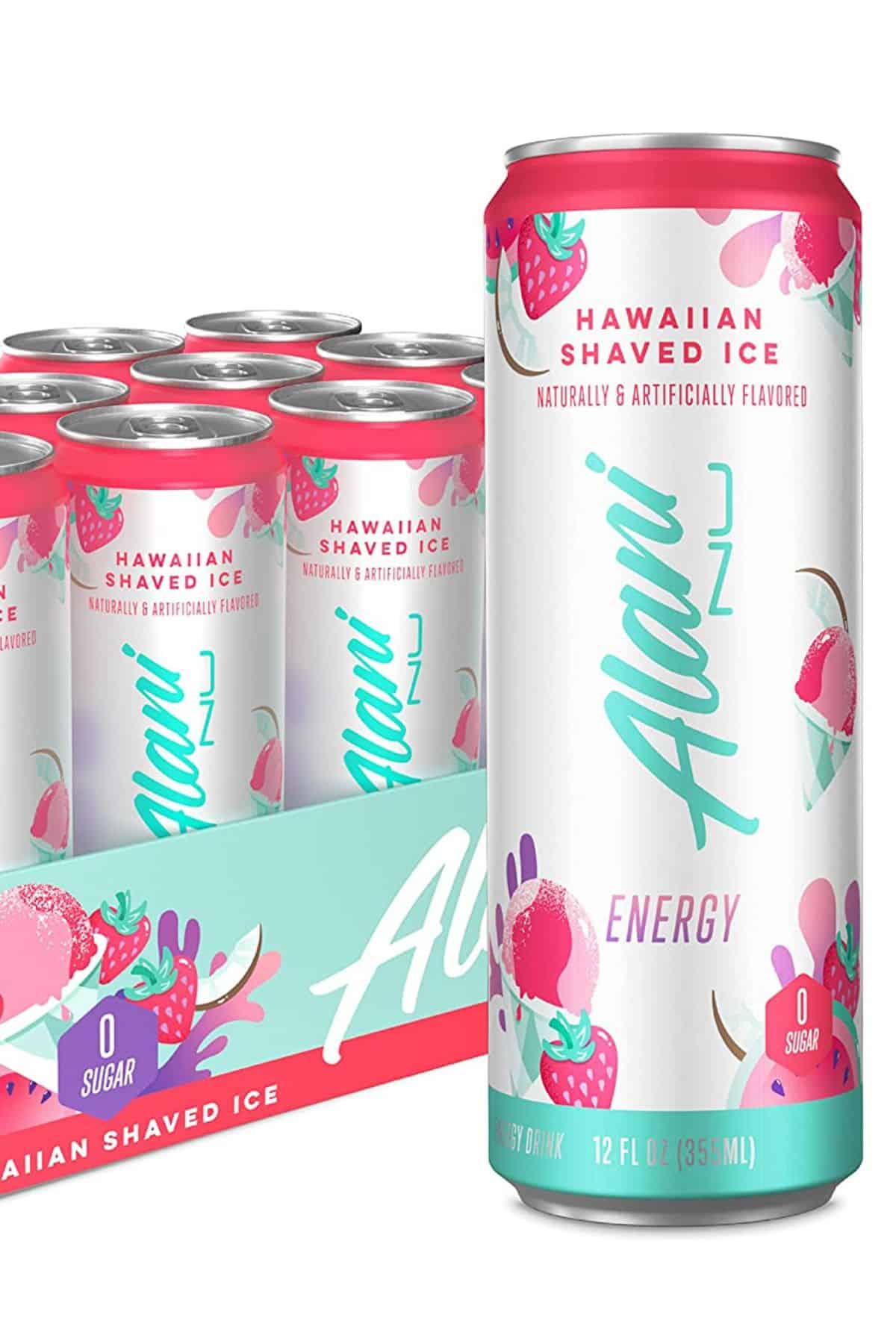
Alani Facts
Alani Nu Energy Drink was made for active people to enhance their performance.
The social media influencer Katy Hearn launched this drink intending to give women the energy they need for a busy lifestyle, especially if they are active or involved with sports.
Alani Energy Drinks are free from the eight major allergens, and they are sugar-free, gluten-free, and vegan.
Each 12 oz serving contains around 10 calories and 200mg of caffeine and is available in a range of flavors, including Breeze Berry, Juicy Peach, Watermelon Weave, Cosmic Stardust, Hawaiian Shaved Ice, Mimosa, Tropsicle, Blue Slush, Dream Float, Cherry Slush, Fruit Blast, Rocket Pop, Electric Energy, and Berry Pop.
Some ingredients listed on the Alani Energy Drink label are processed chemicals.
Knowing whether these ingredients have health implications before including this drink in your diet is essential.
For the Hawaii Shaved Ice flavor, the ingredients list includes:
- Carbonated water
- Citric acid
- Natural and artificial flavors
- Taurine
- Erythritol
- Sodium citrate
- L-theanine
- Caffeine
- Sucralose
- Vegetable juice (for color)
- Panax ginseng root extract
- Sodium benzoate (preservative)
- Potassium sorbate (preservative)
- L-carnitine tartrate
- Acesulfame potassium
- Niacinamide (vitamin B3)
- Gum acacia
- Inositol
- Glucuronolactone
- Sodium chloride
- D-calcium pantothenate (vitamin B5)
- Guarana seed extract
- Pyridoxine hydrochloride (vitamin B6)
- Biotin
- Cyanocobalamin (vitamin B12)
Alani Ingredients
Alani Energy Drinks are generally made of carbonated water, citric acid, non-nutritive sweeteners, natural flavors, and other chemical ingredients.
They have zero sugar and are made to support energy levels. It’s considered potentially as one of the healthy energy drinks or a healthier alternative to products like Red Bull.
Let’s take a closer look at exactly what is inside of an Alani Nu Drink so you can decide if Alanis are bad for you or not.
You might also like my reviews of Celsius Energy Drinks and Ghost Energy Drinks.
Sodium Benzoate
Sodium benzoate is a chemical that inhibits the growth of mold, bacteria, and yeast.
The FDA allows up to a 0.1% concentration of benzoic acid in foods. Because it does not accumulate in the body, it should pass through your system in around 24 hours, contributing to its assumed safety.
However, at least one study showed that it can impair memory and motor function, and there have been reports of increased ADHD symptoms with sodium benzoate consumption.
Erythritol, Sucralose, and Acesulfame Potassium
Alani Energy Drinks are sugar-free with no added sugars.
Instead, they are sweetened with three different non-nutritive sweeteners with zero calories. Although the FDA considers these sweeteners relatively safe, they can cause adverse effects for some people.
Sugar alcohols like erythritol are by-products of wheat starch or corn fermentation and can cause digestive problems for some people, including diarrhea, cramps, bloating, and nausea.
Some people are more sensitive to this than others including those with certain medical conditions and healthy adults too.
Sucralose is chlorinated, and your body can’t metabolize it. Consuming this synthetic sweetener over a long period can have a toxic effect on your body and change the microbiome of your gut.
Acesulfame Potassium is also known as Acesulfame K. It’s a controversial ingredient with several allegations that it is carcinogenic.
Although the FDA approved this sweetener as a safe food additive, there are strict rules around how much a person should consume daily. Further research into the safety of Acesulfame K is crucial.
Caffeine
Caffeine is one of the energizing ingredients included in Alani Energy Drinks. Coffee, pure teas, cacao plants, and other plants like the guarana plant contain caffeine.
Consuming caffeine in moderation may reduce your risk of liver cancer, heart failure, Alzheimer’s, and Parkinson’s disease. It will likely offer a boost of energy and may temporarily improve cognitive function.
On the flip side, caffeine is a stimulant, even if it’s natural. Adults should stick to less than 400 milligrams of caffeine daily, and children should steer clear of it completely.
Each serving of Alani contains 200 mg of caffeine. This means that it could be easy to reach your maximum daily caffeine levels with just a couple of servings.
Too much caffeine or excessive consumption can cause jitters, anxiety, dehydration, increased heart rate, increased blood pressure, headaches, and vomiting. It is not advised for anyone to consume large amounts of caffeine.
See my related review on “Is C4 Energy Drink Healthy?“
Taurine
Taurine is an amino acid found in meat, eggs, and fish. Taurine may help support heart health and aid in maintaining muscle maintenance. You already have natural taurine in your diet if you consume animal products.
Research into taurine used in energy drinks concluded that it lowered serotonin, dopamine, and adrenaline levels, which resulted in changed behavior and altered neural functioning.
Glucuronolactone
Our bodies make small amounts of glucuronolactone. As a food additive, it is a chemical produced in a lab. Because of a lack of research on glucoronolactone, it’s impossible to know whether this chemical is safe.
However, this study revealed that glucuronolactone can cause behavioral changes and that it elevates health risks in high doses.
Nutrition Pros
Alani Energy Drinks contain some healthy ingredients like L-Theanine and Guarana Seed Extract, which are beneficial in moderation because of the caffeine content.
Each serving is only around ten calories and doesn’t contain artificial flavors or colors. It’s also sugar-free and gluten-free.
For a homemade natural drink with electrolytes, try my Pineapple Coconut Water recipe.
Nutrition Cons
Alani Energy Drinks contain many chemical ingredients that may or may not be safe to consume regularly.
People who choose to live a healthy lifestyle may want to avoid Alanis. This product also contains non-nutritive sweeteners that can cause digestive and other health issues. People with stomach problems should avoid having this product.
With 200mg of caffeine in each 12oz serving, Alani Energy Drinks are high in caffeine, so they are unsuitable for children. If an adult has two servings per day, it’s the recommended daily limit for caffeine.
If you’re also having other caffeinated drinks like coffee, it could be easy to have too much.
Another potential drawback is the synthetic B vitamins in Alani Energy Drinks, including vitamin B3 (Niacinamide), vitamin B5 (Calcium D Pantothenate), vitamin B6 (Pyridoxine Hydrochloride), vitamin B8 (Inositol), and vitamin B12 (Cyanocobalamin).
Consuming too much of vitamin B in various forms can cause side effects in sensitive people.
See my related review on “Is Aspire Energy Drink Healthy“.
Alani Drink Nutrition FAQs
Although Alani Energy Drinks may be a little better than some choices of sports drinks, it contains ingredients that health-conscious people may want to exclude from their diet.
It’s always better to choose real food ingredients and make a sports drink homemade if you need a boost for your daily activities. If you need an energy boost from caffeine, it would be better to get more sleep instead or to investigate any medical reasons why you aren’t feeling your best.
Although this drink doesn’t contain added sugar and has few calories, it contains controversial chemical ingredients with potential health implications, including non-nutritive sweeteners associated with obesity and diabetes.
Alani Energy Drinks contain 200mg of caffeine in each 12oz serving which is likely not appropriate for children. It also contains chemicals and artificial sweeteners that may cause adverse health effects.
The caffeine content in Alani Energy Drinks will likely boost your energy on a temporary basis, so you could use it as a pre-workout beverage. The company markets it as a sports drink. However, it’s best to consume real food products made without artificial sweeteners and preservatives if you want to do what’s best for your health.
Don’t Miss These Energy Drink Reviews!
Conclusions
Although they are low in calories and sugar-free, Alani Energy Drinks are processed beverages with controversial and artificial ingredients. It is also high in caffeine content, so it’s unsuitable for children or people sensitive to caffeine. If you need more energy, it’s best to make a nutritious drink with real food ingredients or get more sleep.
Don’t forget to join my newsletter list to get exclusive clean eating recipes and tips. The newsletter is 100% free with no spam; unsubscribe anytime.
About the Author: Carrie Forrest has a master’s degree in public health with a specialty in nutrition and is studying to be a holistic nutritionist. She is a top wellness and food blogger with over 5 million annual visitors to her site. Carrie has an incredible story of recovery from chronic illness and is passionate about helping other women transform their health. Send her a message through her contact form.
Note: this post is for informational purposes only and is not intended as medical advice. Please consult your healthcare provider for recommendations related to your individual situation.



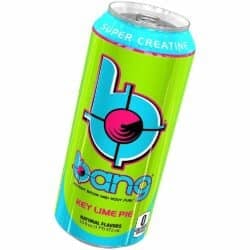

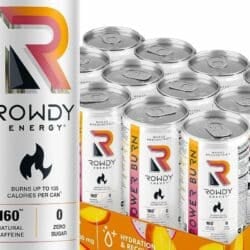




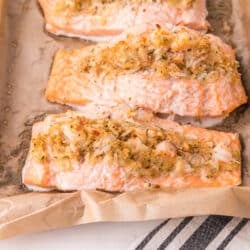
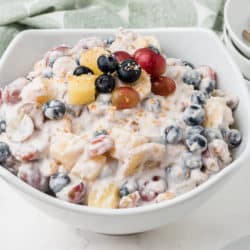










Are the B Vitamins in Alani drinks natural or synthetic? Also what is the least harmful Energy drinks for young adults?
All added B vitamins are synthetic unless it’s a whole food form like liver. So, the B vitamins in Alani are indeed synthetic. The least harmful energy drink for anyone would be something natural like coconut water (for electrolytes) or simply something like green tea or coffee for caffeine (if tolerated, children under 18 should not consume caffeine). Natural energy sources are getting a good night’s sleep, eating a balanced diet, managing stress, taking a nap, etc). This is not nutrition advice, just my opinion.
Was looking for your healthier alternatives and couldn’t find them, beyond making your own. Do you have any healthier suggestions? New to energy drinks, in fact, this Alani was my first. But I would like to steer clear of chemicals. And thoughts appreciated! Thanks!
Great question! Honestly, a natural electrolyte drink of orange juice and coconut water could be an option. Or, simply hydrating more or taking a nap would be the best way to naturally increase energy. I have another article you might like too about increasing energy naturally: https://theglowandglowclub.com/how-to-have-more-energy/